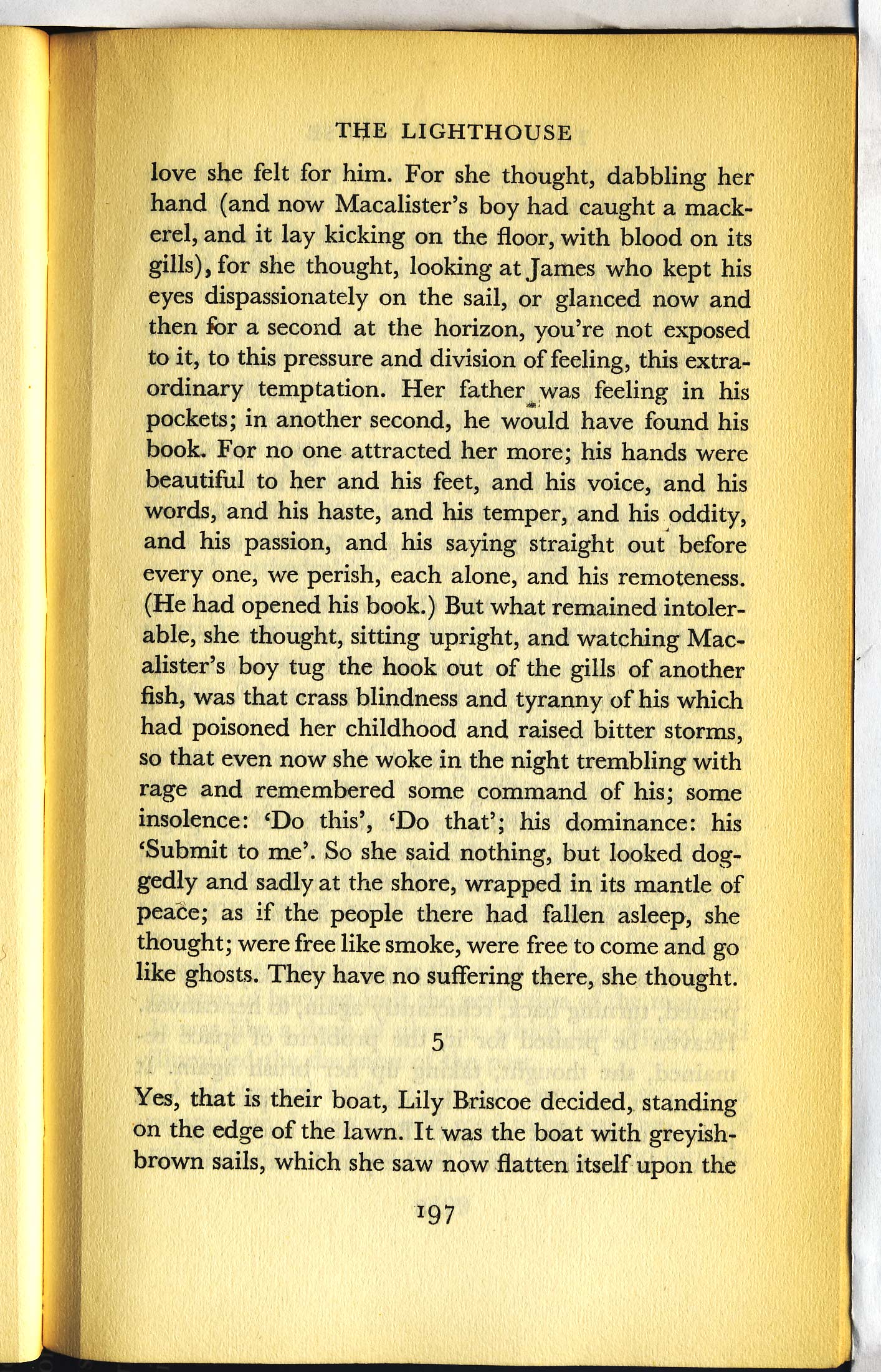
THE LIGHTHOUSElove she felt for him. For she thought, dabbling herhand (and now MacalisterŌĆÖs boy had caught a mack-erel, and it lay kicking on the floor, with blood on itsgills), for she thought, looking at James who kept hiseyes dispassionately on the sail, or glanced now andthen for a second at the horizon, youŌĆÖre not exposedto it, to this pressure and division of feeling, this extra-ordinary temptation. Her father was feeling in hispockets; in another second, he would have found hisbook. For no one attracted her more; his hands werebeautiful to her and his feet, and his voice, and hiswords, and his haste, and his temper, and his oddity,and his passion, and his saying straight out beforeevery one, we perish, each alone, and his remoteness.(He had opened his book.) But what remained intoler-able, she thought, sitting upright, and watching Mac-alisterŌĆÖs boy tug the hook out of the gills of anotherfish, was that crass blindness and tyranny of his whichhad poisoned her childhood and raised bitter storms,so that even now she woke in the night trembling withrage and remembered some command of his; someinsolence: ŌĆśDo thisŌĆÖ, ŌĆśDo thatŌĆÖ; his dominance: hisŌĆśSubmit to meŌĆÖ. So she said nothing, but looked dog-gedly and sadly at the shore, wrapped in its mantle ofpeace; as if the people there had fallen asleep, shethought; were free like smoke, were free to come and golike ghosts. They have no suffering there, she thought.5Yes, that is their boat, Lily Briscoe decided, standingon the edge of the lawn. It was the boat with greyish-brown sails, which she saw now flatten itself upon the197









